The Dominican Republic exports an average of 400 containers of bananas a week and around 95% of these are destined for the European market. Coopabando is a cooperative of small organic banana producers in the Dominican Republic, and their biggest market is France, which absorbs around 90% of their volumes, with the other 10% going to Germany.
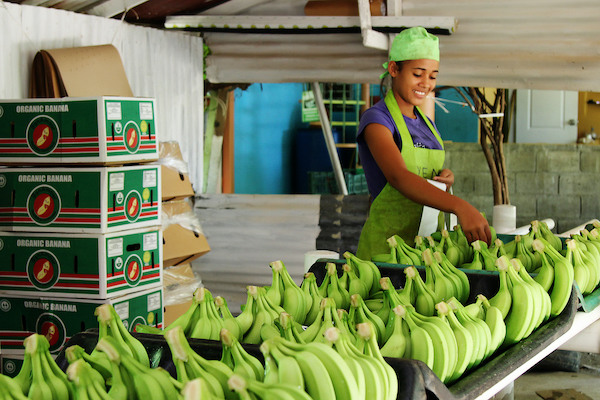
Mostly organic production
Coopabando’s Jose Bernard says: “We started out with around 20 small and medium producers, at our peak we were 100 associates, but now we’re at around 30 to 35 partners. We ship around 10 containers a week, and all of the production is organic.” Bernard explains that 85 – 90% of all the banana production in the Dominican Republic is organic. “About ten years ago, the organic banana market was growing really quickly, but in recent years this growth has tapered off. It’s still growing but not as rapidly.”
He continues: “The competition for organic bananas has also increased a lot. When we started out ten to fifteen years ago, there weren’t many other countries that produced organic bananas, but now countries like Ecuador, Peru, Mexico, some parts of Colombia and some countries in Africa grow organic bananas too, so we are seeing very aggressive competition from these other markets.”
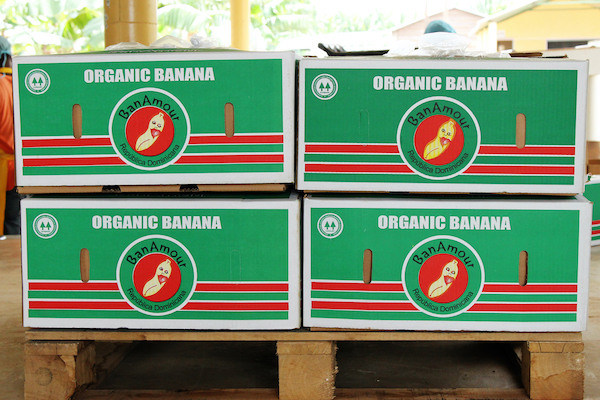
Focus on European market
The reason that Europe is the biggest market for the Dominican bananas is because of an agreement that allows the bananas to be imported duty-free. “The ACP – Africa, Caribbean, and Pacific – countries have a preferential entry market to Europe. The bananas coming out of South and Central America have to pay a duty to send their bananas, but we are able to send them duty-free. That is why we focus on Europe as our main market, because of this benefit, otherwise its hard to compete with the central and south American countries.”
Coopabando’s main focus is France because that’s the main market of their trading customers. The cooperative got their start in 2009 from a project set up by UGBAN. “We were a part of a project of an association of producers in Martinique and Guadalupe, under the cooperative model. For different reasons, we decided to split from it, and we formed Coopabando. But the majority of our contacts came from these beginning years, and we’ve kept our focus on the French market ever since. Other areas, like the UK, the Netherlands, and Scandinavia also have an important market share for the Dominican bananas, says Bernard.
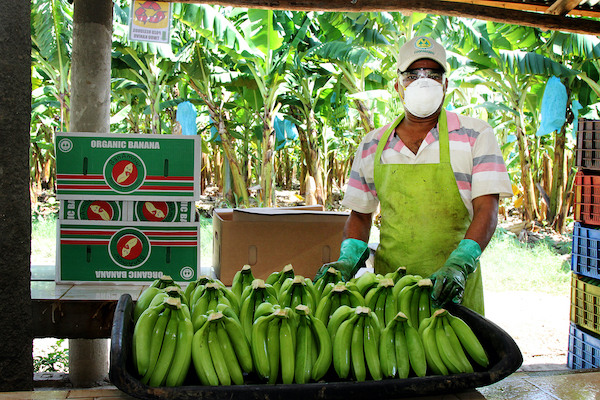
Challenges in the banana market
One of the biggest challenges for Coopabando and its growers is to be able to compete with the large producers. Bernard explains: “The banana industry in Europe is really in the hands of a few large players, so it is really difficult for us to find new customers and expand our business. Now, we are also seeing a shift in the way that the industry is run: many importers from Europe, the UK specifically, are coming here and starting their own export companies. So, this means that there will be a switch in which the growers here will mostly sell their fruit to these exporters, instead of exporting it directly.”
In addition to this, the prices for the bananas have been decreasing every year. “Meanwhile, our production costs are going up every year,” Bernard says. “There is a price war going on, and it’s been really tough on the small growers. If you think about it, an extra 10-15 cents per kilo price increase is something that most consumers in Europe would barely even notice, while these few extra cents could make an enormous difference for the growers.”
The banana sales have also been down these past weeks due to the pandemic, Bernard shares. “Fortunately, the production hasn’t been affected much. There have been challenges, but none of our growers are sick and the production is continuing at normal levels. But we’ve really seen a decrease in sales since the pandemic. In the French market, too, there’s another disadvantage, which is that every summer they always decreased their sales by 30-35%. With everything that is going on right now, it remains to be seen what will happen this summer.”
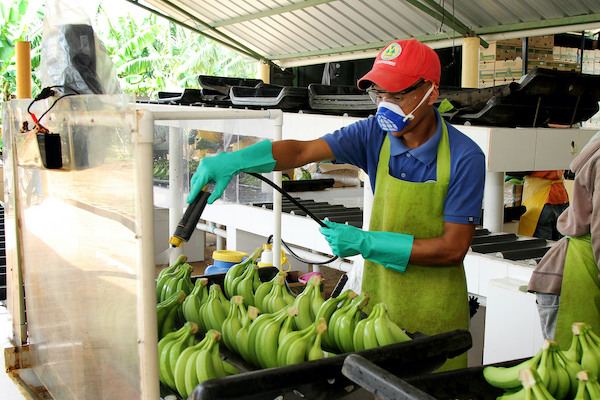
Reaching new markets
While the trade agreement with Europe makes France and Germany very attractive markets for Coopabando, the US is logistically a much more logical market. “We’d like to be able to expand to the US. Europe is a great market to be in, but it’s a disadvantage to be present in only one market. The difficulty is that for both the US and EU, the market’s biggest focus is size, rather than flavor. The Dominican bananas have a very sweet flavor, but due to our climate and our growing conditions they are just naturally smaller. We see that there is often a pressure that focuses on the size rather than the flavor. In the US, particularly, freight costs are higher than those of the EU, even though it’s closer, so competing with big corporations is almost impossible. This makes it difficult for us to enter the market there,” he adds.
Despite all this, Bernard remains optimistic and hopeful for the future of the Dominican bananas and Coopabando: “We always attend trade shows like Fruit Attraction and Fruit Logistica to expand our customer base. Our focus is on maintaining our quality and presentation, as well as maintaining our good relationships with our existing customers. We are looking at the future with hope,” he concludes.
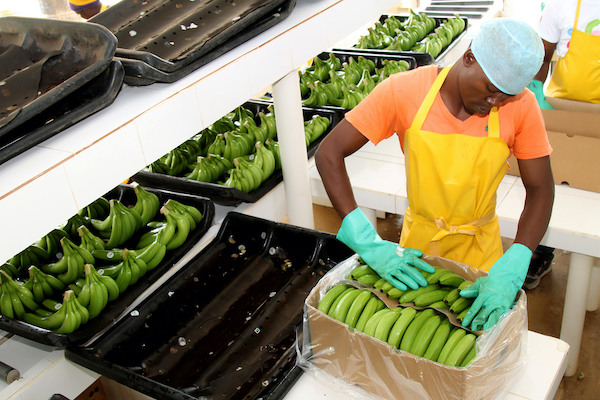
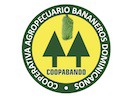 For more information:
For more information:
Jose Bernard
Coopabando
Tel: +1 809-572-6219
Email: jose@coopabando.com
